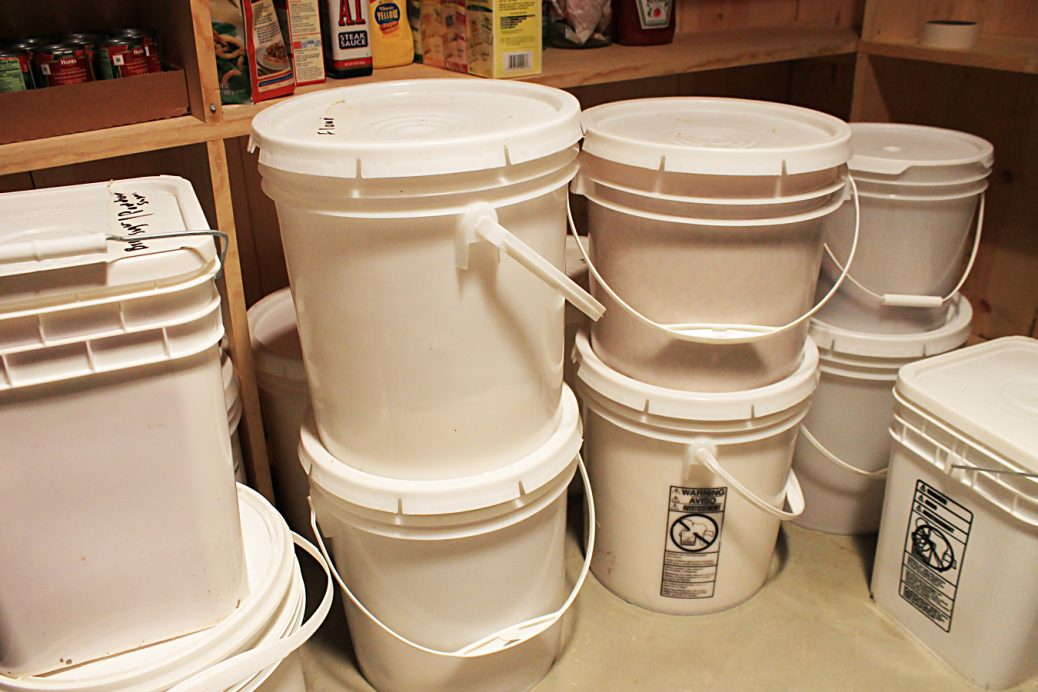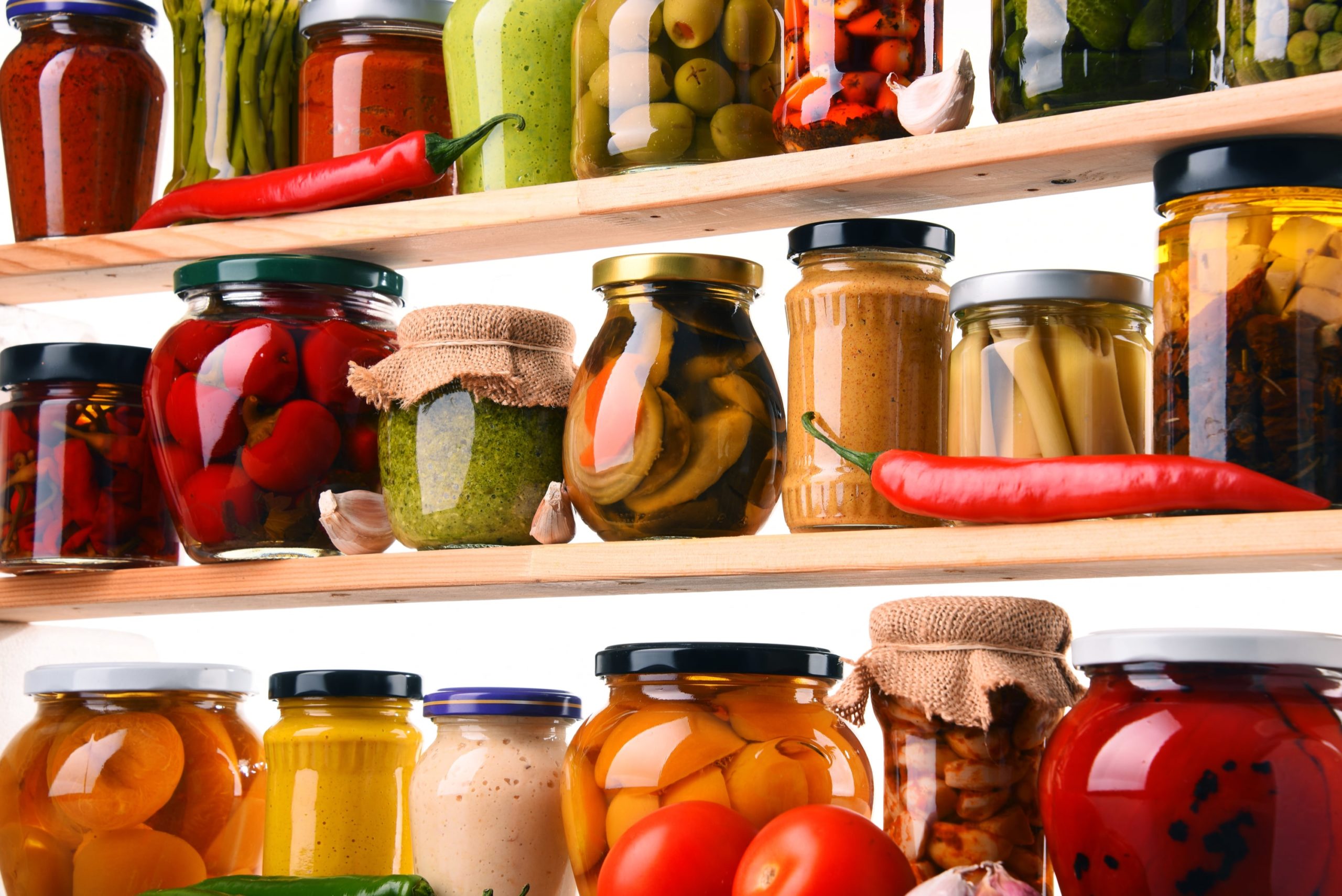Long run meals storage is the follow of preserving meals for prolonged intervals, making certain entry to sustenance throughout emergencies, pure disasters, or disruptions to the provision chain. This complete information explores numerous strategies, appropriate meals sorts, packaging concerns, and security measures to empower people with the information and expertise to determine a dependable long-term meals storage system.
By implementing these methods, households can improve their resilience, preserve dietary well-being, and achieve peace of thoughts understanding they’ve a safe meals supply in occasions of uncertainty.
Introduction
Lengthy-term meals storage is the follow of storing meals for prolonged intervals of time, sometimes a number of months and even years. It’s a essential facet of emergency preparedness, making certain entry to meals within the occasion of disasters, energy outages, or different disruptions.
There are a number of strategies for long-term meals storage, every with its benefits and drawbacks. These embody:
Dehydration
Dehydration removes moisture from meals, decreasing its weight and quantity. This inhibits the expansion of micro organism and mildew, extending the meals’s shelf life considerably. Dehydrated meals might be saved in hermetic containers or vacuum-sealed luggage.
Forms of Meals for Lengthy-Time period Storage: Lengthy Time period Meals Storage

Deciding on appropriate meals for long-term storage is essential to make sure sustenance throughout emergencies or prolonged intervals of inaccessibility to contemporary meals sources. These meals ought to possess prolonged shelf lives, dietary worth, and flexibility in preparation.
Canned Items
Canned meals are a preferred selection for long-term storage because of their prolonged shelf life, starting from 2 to five years or extra. The canning course of entails heating meals in sealed containers to remove micro organism and create a vacuum, stopping spoilage.
Frequent canned items embody fruits, greens, meats, fish, and soups.
Dried Meals
Drying removes moisture from meals, considerably extending its shelf life. Dried meals, comparable to beans, lentils, rice, pasta, and fruits, can final for a number of months to years. They require rehydration earlier than consumption however supply a light-weight and compact storage possibility.
Frozen Meals
Freezing meals at temperatures under 0°F (-18°C) successfully halts microbial development and preserves vitamins. Frozen meals, comparable to fruits, greens, meats, and ready meals, can preserve their high quality for months and even years when saved correctly.
Dehydrated Meals
Dehydration entails eradicating practically all moisture from meals, leading to a shelf lifetime of as much as 25 years or extra. Dehydrated meals, comparable to jerky, freeze-dried fruits, and powdered milk, are light-weight, simple to retailer, and require rehydration earlier than consumption.
Different Shelf-Secure Meals
Sure meals have inherent shelf stability because of their low moisture content material and pure preservatives. These embody honey, peanut butter, crackers, and a few sorts of nuts. They will final for a number of months and even years with out refrigeration.
Strategies of Lengthy-Time period Meals Storage
Lengthy-term meals storage entails preserving meals gadgets to keep up their high quality and dietary worth over an prolonged interval, sometimes for months and even years. Varied strategies are employed to realize this, every with its benefits and downsides.
Canning
Canning is a technique that entails sealing meals in hermetic containers, comparable to jars or cans, after heating it to a excessive temperature. This course of creates a vacuum throughout the container, stopping the entry of microorganisms that may trigger spoilage.
Canning is appropriate for a variety of meals, together with fruits, greens, meats, and fish. It permits for long-term storage at room temperature, making it handy and sensible.
Benefits:
- Lengthy shelf life
- Handy storage
- Preserves vitamins and taste
Disadvantages:
- Requires specialised tools and expertise
- Can alter the feel and taste of some meals
- Will not be appropriate for every type of meals
Packaging and Storage Issues

Correct packaging and storage situations are essential for making certain the longevity and high quality of long-term meals storage. By selecting the best containers and storage places, you possibly can shield your meals from moisture, pests, and temperature fluctuations.
Selecting the Proper Containers
Choose containers which are hermetic, moisture-proof, and sturdy. Glass jars, metallic cans, and heavy-duty plastic containers are wonderful choices. Keep away from containers which are liable to rust, take up moisture, or are simply broken.
Storage Places
Select a cool, dry, and darkish location for storing your meals. Basements, cellars, and inside closets are appropriate choices. Keep away from areas with extreme warmth, humidity, or publicity to daylight.
Controlling Temperature, Humidity, and Pests
Keep a constant temperature between 50-70°F (10-21°C). Use a thermometer to watch temperature and alter storage places accordingly. Maintain humidity ranges under 50% to forestall mildew and spoilage. Set up moisture absorbers or dehumidifiers to regulate humidity. Defend your meals from pests by utilizing hermetic containers and inserting them in pest-proof storage bins or cupboards.
Group and Stock Administration

Sustaining group and efficient stock administration is essential for profitable long-term meals storage. An organized system permits for environment friendly entry, well timed consumption, and minimizes spoilage or waste.
To ascertain a complete stock system, contemplate implementing the next methods:
Categorization and Labeling
- Categorize meals gadgets primarily based on sort (e.g., canned items, grains, dehydrated meals) and meant use (e.g., on a regular basis consumption, emergency rations).
- Clearly label every container with the meals merchandise’s title, date of packaging, and expiration date.
FIFO and First Expire First Out (FEFO)
- Implement the “First In, First Out” (FIFO) methodology to make sure older gadgets are consumed earlier than newer ones.
- Prioritize consumption of things with shorter shelf lives utilizing the “First Expire First Out” (FEFO) strategy.
Common Inspections and Stock Updates
- Conduct common inspections to test for indicators of spoilage, pest infestation, or harm.
- Replace the stock record usually to mirror present inventory ranges and determine gadgets that must be replenished.
Security and Sanitation
Lengthy-term meals storage carries inherent dangers if not managed correctly. Understanding potential hazards and adhering to strict security and sanitation tips is essential to protect meals high quality, forestall spoilage, and make sure the well-being of customers.
To keep up meals security and stop spoilage throughout long-term storage, a number of key measures have to be carried out. These embody correct hygiene practices, optimum storage situations, and common monitoring to detect any indicators of degradation.
Meals Security Hazards
Potential dangers related to long-term meals storage embody:
- Microbial development:Micro organism, mildew, and yeast can thrive in heat, moist environments, resulting in meals spoilage and potential well being hazards.
- Chemical reactions:Over time, sure meals might bear chemical reactions that may alter their dietary worth, taste, or security.
- Insect and rodent infestation:Pests can contaminate meals and introduce pathogens, posing a well being danger.
- Improper packaging:Insufficient packaging can enable moisture, oxygen, or pests to penetrate, compromising meals high quality and security.
Sustaining Meals Security
To make sure meals security throughout long-term storage, comply with these tips:
- Hygiene:Keep a clear and sanitary atmosphere throughout meals dealing with and storage. Wash palms completely, sanitize surfaces, and keep away from cross-contamination.
- Storage situations:Retailer meals in a cool, dry, and darkish place. Supreme temperatures fluctuate relying on the kind of meals; seek the advice of storage suggestions for particular gadgets.
- Packaging:Use hermetic containers or vacuum-sealed luggage to attenuate publicity to moisture, oxygen, and pests.
- Monitoring:Often examine saved meals for indicators of spoilage, comparable to mildew, discoloration, or off-odors. Discard any contaminated gadgets promptly.
Dietary Issues
Sustaining the dietary worth of long-term saved meals is essential for sustaining well being and well-being throughout emergencies or prolonged intervals of meals shortage. Understanding the potential nutrient losses and implementing methods to protect dietary content material is crucial for efficient meals storage practices.
Throughout long-term storage, sure vitamins, comparable to nutritional vitamins A, C, and B nutritional vitamins, can degrade over time because of elements like oxidation, gentle publicity, and moisture. To mitigate these losses, contemplate the next methods:
Storage Methods, Long run meals storage
- Hermetic Packaging:Retailer meals in hermetic containers or vacuum-sealed luggage to attenuate oxygen publicity, which might speed up nutrient degradation.
- Mild Safety:Defend meals from direct daylight, which might break down nutritional vitamins and different vitamins. Retailer meals in opaque containers or preserve them in a darkish, cool place.
- Moisture Management:Moisture can promote microbial development and nutrient loss. Use moisture-resistant containers and keep away from storing meals in humid environments.
Meals Choice and Supplementation
- Nutrient-Wealthy Meals:Prioritize storing nutrient-dense meals, comparable to beans, lentils, nuts, seeds, and complete grains.
- Recent Produce Supplementation:Often complement saved meals with contemporary produce, which gives important nutritional vitamins, minerals, and antioxidants.
- Vitamin Dietary supplements:Think about using vitamin dietary supplements to compensate for potential nutrient losses, particularly if entry to contemporary produce is restricted.
Emergency Preparedness
Lengthy-term meals storage performs a vital position in emergency preparedness by making certain that people and households have entry to sustenance throughout sudden occasions comparable to pure disasters, energy outages, or disruptions in provide chains.
The beneficial portions of meals to retailer fluctuate relying on family dimension and the specified period of self-sufficiency. Usually, consultants advocate storing a minimal of 3-day provide of non-perishable meals gadgets for every member of the family. For prolonged emergencies, contemplate rising the provision to 1-2 weeks or extra.
Creating an Emergency Meals Plan
An emergency meals plan Artikels the precise meals, portions, and storage strategies to make sure a dependable meals provide throughout emergencies. When making a plan, contemplate the next:
- Establish the precise dietary wants and preferences of family members.
- Select non-perishable meals with a protracted shelf life, comparable to canned items, dried fruits, and nuts.
- Think about selection to keep up dietary steadiness and stop boredom.
- Embrace a mixture of ready-to-eat and easy-to-prepare meals.
- Retailer meals in a cool, dry location protected against pests and moisture.
Extra Assets
Entry complete info and steerage on long-term meals storage from respected sources. Discover organizations, web sites, and publications that provide in-depth information and sensible recommendation to make sure your preparedness.
On-line Assets
- Prepared.gov:Official web site of the U.S. Division of Homeland Safety, offering detailed info on emergency preparedness, together with long-term meals storage.
- Federal Emergency Administration Company (FEMA):Affords sources and steerage on catastrophe preparedness, together with meals storage and security.
- Facilities for Illness Management and Prevention (CDC):Supplies info on meals security and hygiene practices for long-term meals storage.
- Nationwide Heart for Dwelling Meals Preservation:Affords research-based steerage on meals preservation strategies, together with canning, freezing, and drying.
- Prepper’s Pantry:A complete web site devoted to long-term meals storage, with articles, evaluations, and product suggestions.
Common Inquiries
What are the important thing advantages of long run meals storage?
Long run meals storage provides a number of benefits, together with: making certain entry to sustenance throughout emergencies, mitigating provide chain disruptions, enhancing meals safety, and selling self-reliance.
How do I decide the suitable amount of meals to retailer?
The beneficial amount of meals to retailer will depend on family dimension and desired period of meals safety. start line is to goal for a three-month provide of non-perishable meals gadgets per individual.
What are some widespread errors to keep away from in long run meals storage?
Frequent errors to keep away from embody: improper packaging, insufficient storage situations, neglecting stock administration, and failing to keep up meals security practices. By following the rules Artikeld on this information, these pitfalls might be successfully addressed.
